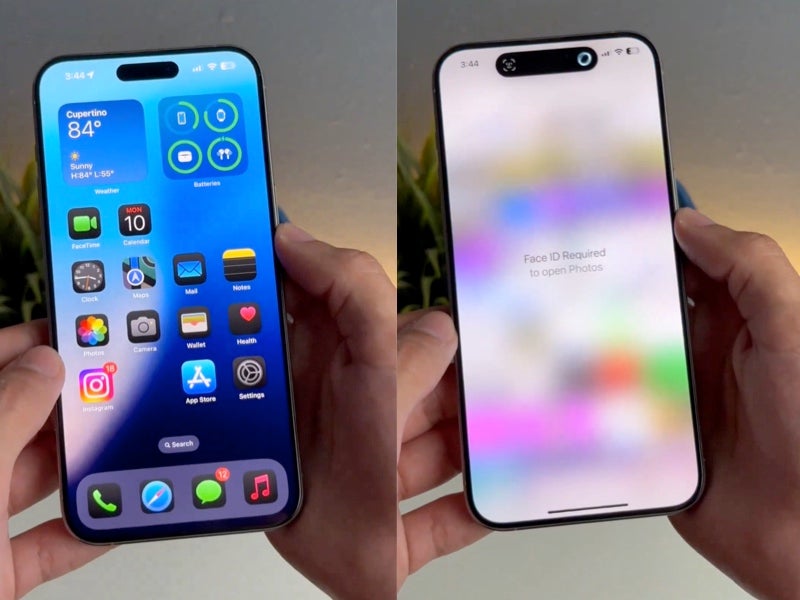Apple unveils ‘cheater’s paradise’ with new feature that allows apps to be hidden behind Face ID
‘Cheaters everywhere are celebrating,’ says Apple user in response to new iOS 18 update

A new Apple feature coming to iPhones with iOS 18 has some people in relationships doing a double take.
On Monday 10 June, the company showed off a host of new features in its latest software update, iOS 18. During the Worldwide Developers Conference (WWDC) in California, Apple revealed its “biggest ever” update will allow users to customize their home screen with new colors, react to iMessages with more emojis, schedule texts to be sent later, and create new “Genmojis” using generative AI technology.
However, one update coming to iOS 18 has some Apple users less excited. On Monday, the company also revealed that iPhones with iOS 18 will be able to hide certain apps and lock them behind Face ID, so they can’t be accessed by someone who is sharing the phone.
A video posted to X, formerly Twitter, demonstrated how iPhone users will be able to lock their apps behind face recognition. In the clip, which has over 1.3 million views, one person’s Photos app was locked with Face ID. Instead, the text over screen read: “Face ID required to open Photos.”
Unsurprisingly, the new feature rollout sparked some worried reactions from people in relationships – especially those concerned about infidelity. With the Face ID feature, it’s likely that some iPhone users will use the new tool to hide nefarious conversations with people outside of their relationship on apps like Tinder, Hinge, Grindr, or even Instagram.
“Oops. Apple gonna break up some couples,” one X user wrote in response to the Face ID feature.
“Cheaters everywhere are celebrating rn,” another person jokingly said.
“Apple just innovating random things to help these dusty men,” a third user wrote.
In addition to the Face ID feature, perhaps the biggest update coming to iOS 18 is Apple’s new artificial-intelligence technology, called “Apple Intelligence”. The tools are a “personal intelligence system for iPhone, iPad, and Mac that combines the power of generative models with personal context to deliver intelligence that’s incredibly useful and relevant,” the company said as it announced the feature.
Using the AI tool, iPhones will be able to liaise with ChatGPT and create images using generative AI. However, Apple Intelligence will only be available on the iPhone 15 and 15 Pro Max, the company said.
The developer beta version of Apple’s iOS 18 update is currently available. It can be downloaded by heading to the Settings app on a device and opting into the beta, though it may come with some glitches – such as reduced performance or data loss. Apple advises people to backup their devices before downloading it.
The public beta of the software will then become available in July, according to Apple, followed by the full update towards the end of 2024.
Join our commenting forum
Join thought-provoking conversations, follow other Independent readers and see their replies
Comments
Bookmark popover
Removed from bookmarks